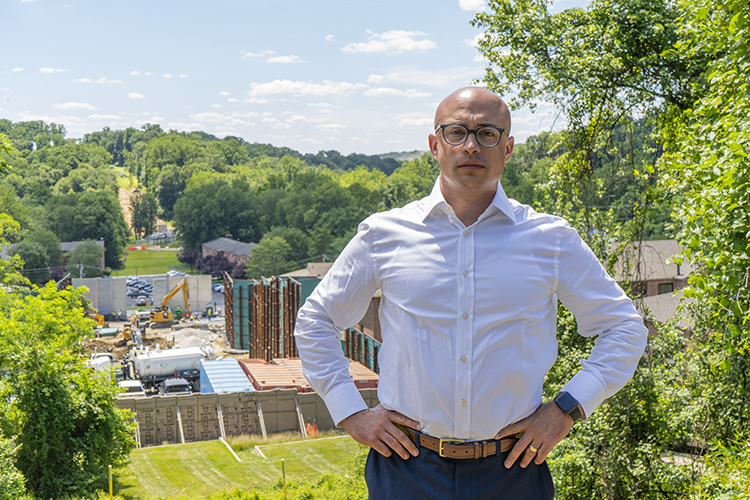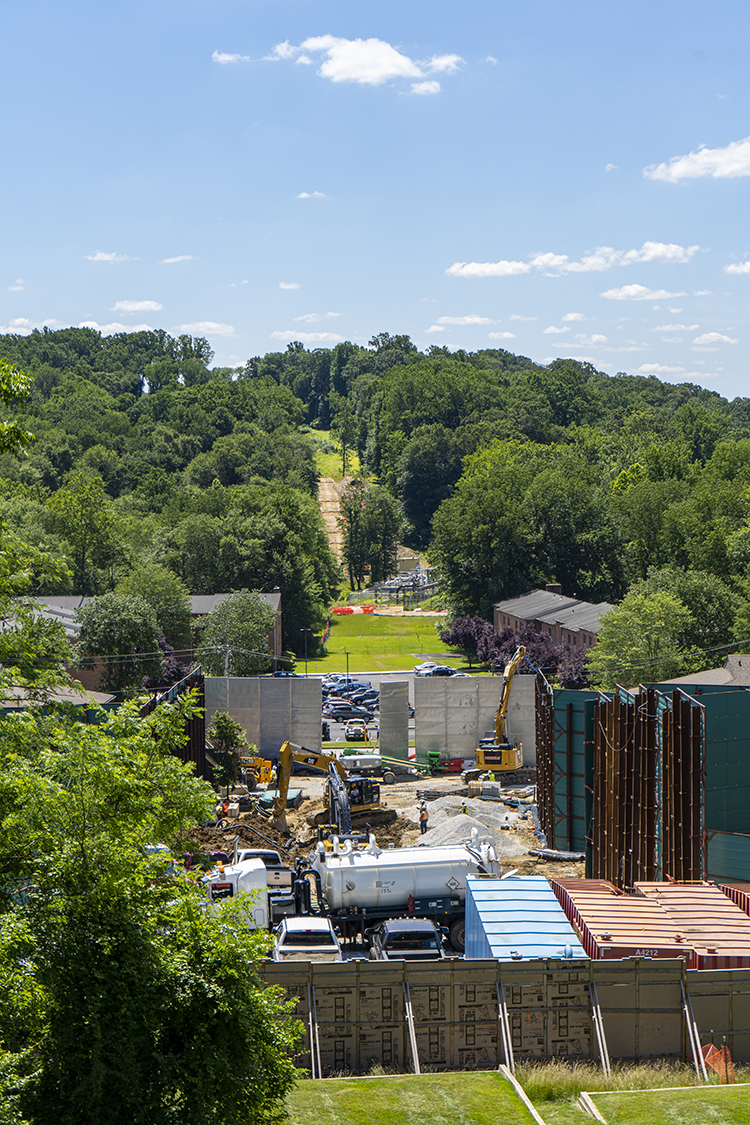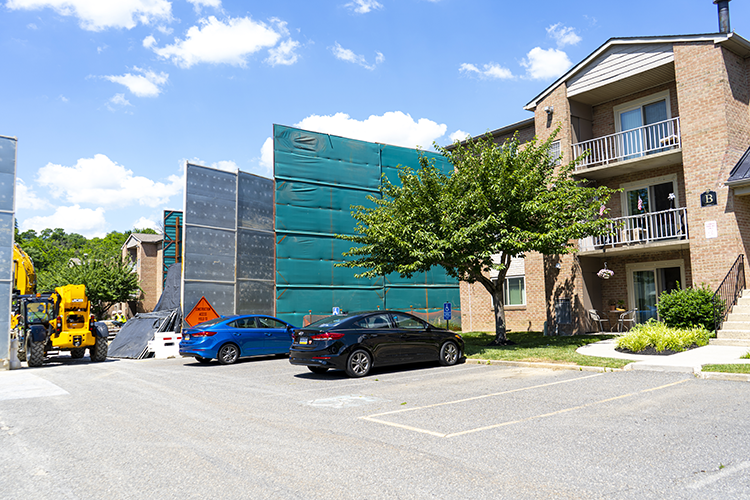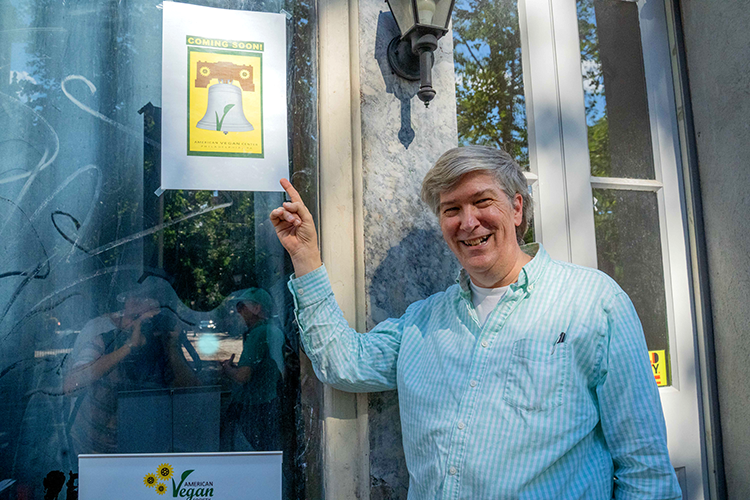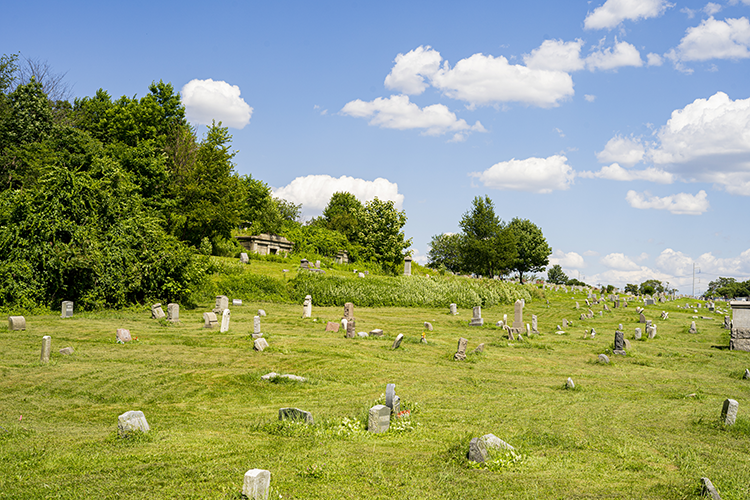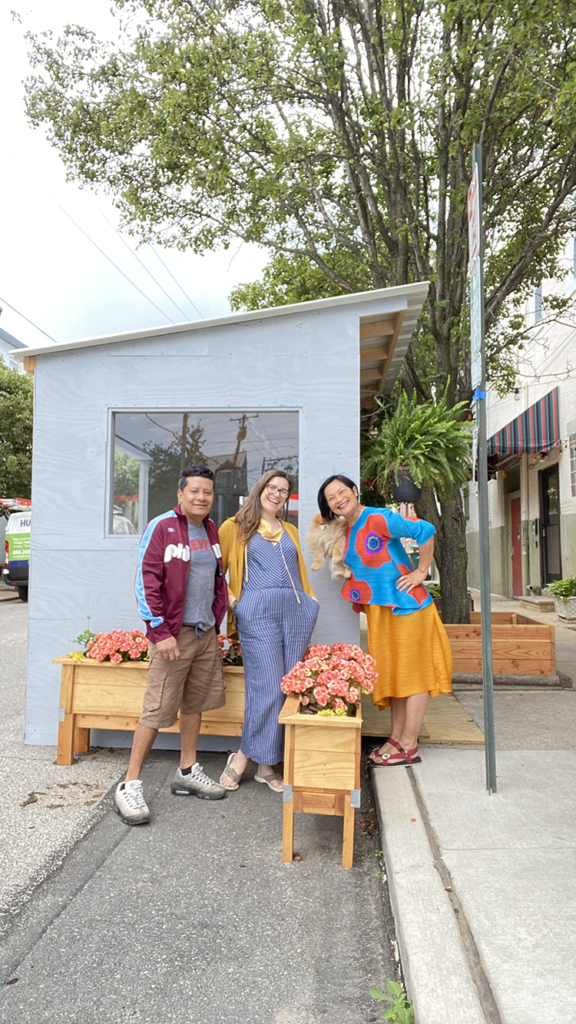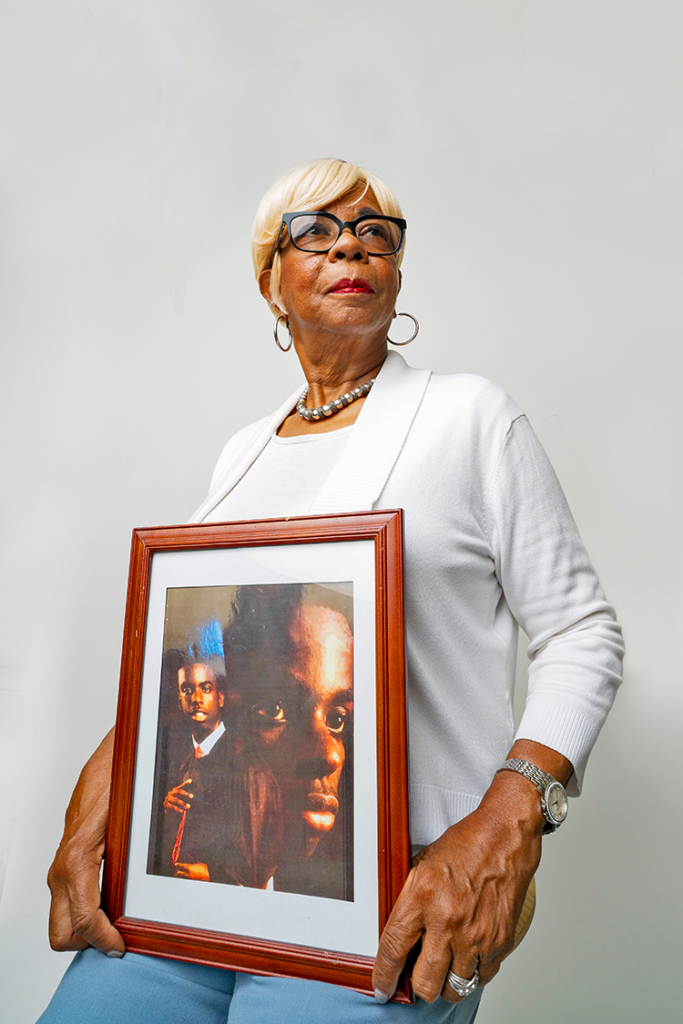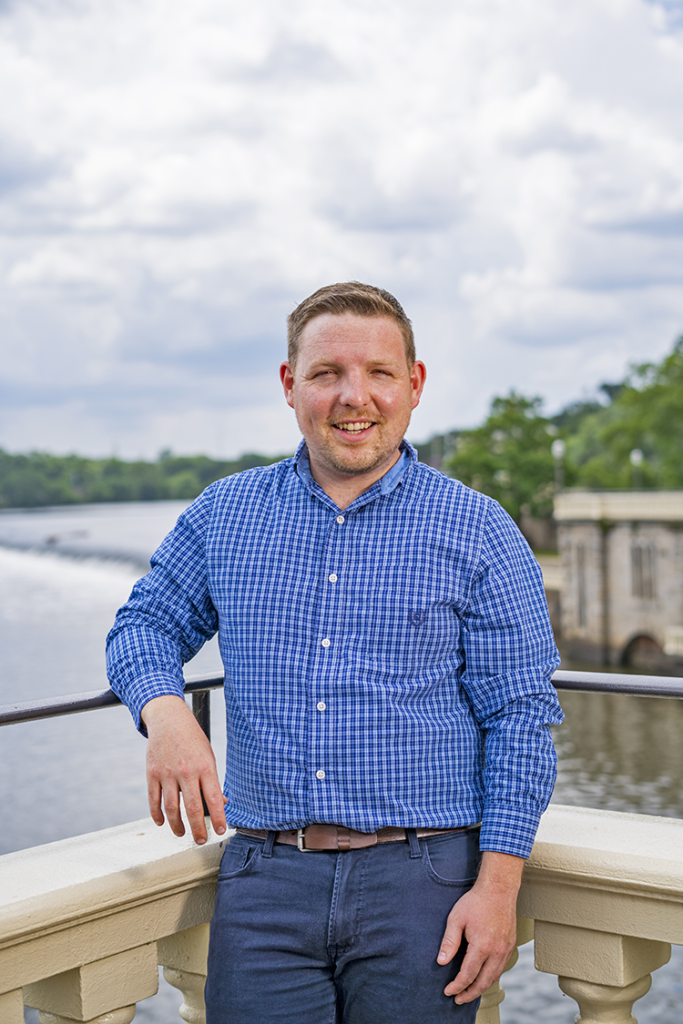Along the long, winding roads of Glen Riddle, a small community close to Media in Delaware County, sits Glen Riddle Station Apartments, a 124-unit complex at the center of yet another Mariner East pipeline controversy.
On May 26 more than 200 residents of Glen Riddle Station found themselves without water, and Pennsylvania State Police launched an investigation into the actions of a Sunoco representative. For residents, this is the latest episode in what they see as chronic carelessness and malevolent indifference on Sunoco’s part for those who live near the pipeline.
Energy Transfer LP, Sunoco’s parent company, began construction on the Mariner East 2 pipeline in December 2018. The pipeline has been designed to cross the entirety of the Commonwealth of Pennsylvania from east to west, moving natural gas liquids across the state. Similar to other large-scale pipeline operations, Mariner East has been plagued by controversy—from issues surrounding permits to being deemed negligent by a Public Utility Commission judge in Delaware and Chester counties.
Despite the controversy, Energy Transfer has continued construction.
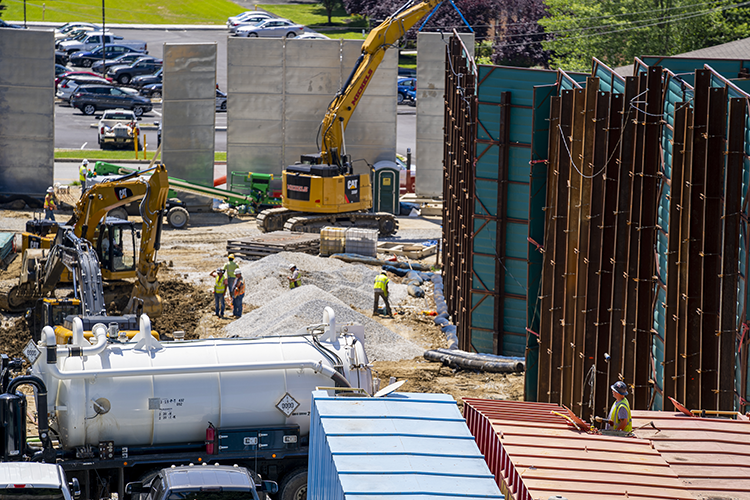
In November 2020, with the backing of state courts, Sunoco exercised eminent domain to claim the privately owned land at Glen Riddle Station. A long, grassy hill separates two of the five apartment buildings from the other three, but for the last six months these buildings have been divided by a wall that’s somewhere between 40 and 50 feet high, meant to dampen the loud sounds and bright lights of drilling and construction work.
Steve Iacobucci, one of the owners of Glen Riddle Station, has been advocating for residents’ safety and health concerns around pipeline construction.
“This has been a battle since November,” says Steve Iacobucci, one of the owners of Glen Riddle Station. “It’s been a battle to get safety concerns and questions addressed [about] the operation,”’ he explains.
Iacobucci is not alone in his concerns about safety. In a virtual council meeting for residents of Middletown Township on April 12, residents raised concerns about safety and evacuation plans that went unanswered by a Sunoco representative.
Energy Transfer Vice President of Corporate Communications Vicki Anderson Granado did not answer the questions Grid asked but provided a statement denying any wrongdoing on Energy Transfer’s part.
In late April Sunoco had already been found negligent for not warning residents of Delaware County about the risks posed by a potential leak.
“Right now I have no quality of life. They surrounded my apartment with 50-foot walls, 180 degrees around.”
— Miriam Magobet, Glen Riddle Station resident
In 2017 about 1,000 gallons of natural gas liquids leaked from the Mariner East 1 in Berks County, and an Energy Transfer natural gas liquid pipeline exploded outside of Houston in 2020.
“The invasion began in November,” begins Antoinette Nolek, a two-and-a-half year resident of Glen Riddle Station. Nolek cares for her 75-year-old sister with cerebral palsy.
“She used to walk around the whole complex, and that was the only exercise that she could get, but now it’s all cut up and her walk is only this sidewalk,” Nolek says.
Nolek lives on the first floor of the apartment complex, mere feet away from the wall. “The wall is pretty ugly and it has blocked a lot of sunlight that I once got,” she explains. Nolek and her upstairs neighbor, Miriam Magobet, have lived no more than 20 feet from the wall for the last half year.
“I used to have a peaceful life until Energy Transfer came along,” says Magobet.
“Right now I have no quality of life. They surrounded my apartment with 50-foot walls, 180 degrees around. I don’t sit on my patio because I have to look at this … wall and I have to listen to the pounding, beeping and drilling noises of the cranes and bulldozers,” she says, choking back tears.
Magobet, who is in her fifties, works the night shift as a healthcare worker at Children’s Hospital of Philadelphia. The loud noises of construction often leave her sleep deprived. She describes vibrations in her building that she compares to an earthquake and worries about the safety of the air she breathes.
The site of massive bags of Calciment and large plumes of smoke coming from the easement prompted Magobet to purchase an air monitor. She shared her data with Grid, showing that the air quality was unhealthy on a number of occasions. According to a Purple Air sensor, the air at Glen Riddle Station has gone as high as 342 on the U.S. Air Quality Index, which is deemed “hazardous” and an “emergency” by the Air Quality Index. When Grid asked Energy Transfer if they were monitoring air quality, officials did not respond.
This spike in poor air quality coincides with a fire that many tenants of Glen Riddle Station claimed to have seen on the construction site on March 2. “There was a fire on the easement. We all ran out and called 9-1-1. We all smelled fire, and at no point in time did they send out a fire truck,” Magobet says.
In an April 20 Middletown Township meeting a Sunoco representative denied that a fire took place, saying, “We never had a fire.” Mark Kirchgasser, the chair of Middletown Township Council, who also serves as the public information officer for the Middletown Fire Department says, “There was no fire or emergency.”
As a way to curry favor in the communities they operate in, Energy Transfer often donates large sums to sports teams, parks and public utility services. In February Energy Transfer gave $29,931 to the Rocky Run Fire Company, which provides volunteer emergency services to Middletown Township and Glen Riddle.
Biljana Todic, 34, a resident of Tunbridge Apartments, which is directly across from Glen Riddle Station, also experienced pipeline construction. She corroborates that she, too, called 9-1-1 but never saw a fire truck.
“I was outside around 7:30 p.m. and you could smell smoke, and I looked at Glen Riddle Stationv, which is encased in this giant wall—you could see smoke billowing out,” says Todic.
Coincidentally, in 2018, Tunbridge Apartments experienced an incident that the Pennsylvania Department of Environmental Protection (DEP) calls an “inadvertent return.”
A 2021 DEP report describes a spill of “50 gallons of drilling solution onto uplands parking lot area near Tunbridge [Apartments], some of the fluid entered the storm drain inlet which then discharged from the stormwater pipe outfall.” This is just one of more than 100 “inadvertent returns” of fluid into waterways listed in the April 23, 2021 PA DEP report on the Mariner East 2 pipeline.
Safety remains the primary concern for people living near the Mariner East. In online town halls, residents from around the area are asking for full transparency and evacuation routes in the event of a leak, including accommodations for the disabled to evacuate. Dozens have called into township council meetings, and signs have been erected outside of Glen Riddle Station reading “Protect Us” and “Shame on Sunoco.” Still, tenants of Glen Riddle Station have yet to be provided with a safety plan.
Glen Riddle Station Apartments abuts Sunoco ‘s construction of the Mariner East 2 pipeline.
The atmosphere at Glen Riddle Station is tense; dozens of construction workers and members of Sunoco’s private security stand guard at the wall with signs plastered stating that Sunoco has the right to record anyone on the premises. When approached for comment, pipeline workers began recording on a bodycam and became adversarial. Ownership at Glen Riddle Station has hired their own security for the comfort of its tenants and has private engineers monitoring the site.
In an attempt to “alleviate their disruption” of Glen Riddle Station, Energy Transfer has begun to offer rent relief to the tenants of the apartment complex. Energy Transfer is offering between 30% to 75% of rent in 2021, depending on the tenant.
“Now at the last minute they’re coming with rent relief,”says Magobet. “That’s a day late and a dollar short. They aren’t even answering this situation correctly. We still don’t have answers.”
Energy Transfer says, “the entirety of this work, including restoration, is expected to be completed in June.” Residents of Glen Riddle Station are skeptical that it will be completed so soon. Ownership of Glen Riddle Station told Grid that construction would end in July.
On may 26 “there was a break in the water line within the condemned Sunoco pipeline work zone at Glen Riddle Station Apartments,” says Iacobucci.
After this water break, apartment ownership asked that the water remain off until tested for contamination, but according to Iacobucci, “a Sunoco representative then entered into our building without our authorization and turned the potentially contaminated water on.”
Pennsylvania State Police were called.
On May 27 hundreds of people remained without water to shower, cook or clean. Glen Riddle Station demanded that Sunoco put residents in a hotel or similar accommodations until the issue was resolved. Energy Transfer responded by dropping off “two porta potties and several bottles of water,” according to Iacobucci.
Lisa Coleman, a spokesperson with Energy Transfer denied that Energy Transfer hit a water line, saying, “The cause of the break on their line is under investigation.”
The pipeline saga is far from over, and Glen Riddle Station is just one of many communities affected by pipeline construction. After the completion of this portion of the Mariner East 2, there is still much more construction to be done throughout the commonwealth in the name of natural gas infrastructure.
At the time of publication, the safety of the water at Glen Riddle Station remains in question as a third party continues to test its purity. The apartment ownership remains in litigation with Middletown Township and Sunoco in a case to force “Middletown Township to share correspondence between township staff members, elected officials and Sunoco, dating back to January 1, 2019.”



